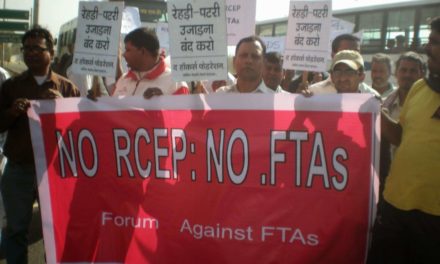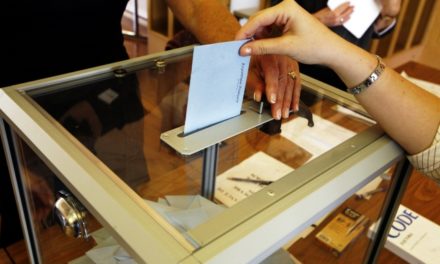Press Release from EU-ASEAN FTA Philippines Network
WIKILEAKS PUBLISHES LEAKED TPP INVESTMENT TEXT
NETWORK URGES PHILIPPINE GOVERNMENT TO RETHINK TPP PLANS
The EU-ASEAN FTA Campaign Network in the Philippines strongly urges the Philippine government to rethink its plans to join the Trans-Pacific Partnership Agreement (TPP) in the wake of the release of a leaked copy of the proposed agreement’s controversial investment chapter.
Amidst increasing public backlash over the lack of transparency in the TPP talks, a leaked document outlining the draft negotiating text of the investment chapter was released by Wikileaks, and its authenticity verified by Public Citizen, a US-based think-tank.
According to Josua Mata, Secretary General of SENTRO “the leaked text confirms the fear that we have expressed to government countless times, that the TPP and similar new generation FTAs would give corporations greater protection and rights including the power to sue governments over policies and regulations under the investor to state dispute settlement (ISDS) provision.”
The TPP talks aim for a high standard, ambitious trade and investment agreement among 12 countries led by the United States, Canada, Singapore, Brunei, Malaysia, Vietnam, Japan, Australia, New Zealand, Chile, Peru and Mexico. While the Philippines is currently excluded from the talks, the TPP allows for countries to join at a later stage if they are willing to conform to the high standard of liberalization and rules that would be agreed upon.
The Philippine government has expressed on several occasions its desire to join the TPP. Motivated by the ‘fear of being left out’ of this mega trade deal, the government unveiled in 2013 a road map in order to prepare for the country’s eventual inclusion in the agreement.
“Given the growing public concern over these expansive rights to be granted to corporations, we think that the Philippine government should really reconsider and do a 180 degree turn away from its roadmap to TPP” Mata added.
According to Joseph Purugganan, Philippine Coordinator of Focus on the Global South, “the TPP and other new generation or mega FTAs are really more than just trade agreements. They are pushing an economic agenda that demand far deeper commitments from negotiating parties.”
“Given the nature of these deep FTAs, it is not surprising that the more contentious issues are not anymore over tariffs and market liberalization but on the issues where the most aggressive agenda lie: in intellectual property rights, in investment chapter and investor protection provisions, and regulatory coherence.”
One of the concerns over ISDS is the strain on public budget from the high cost of litigation of investment disputes. In a memorandum on investment chapter in FTAs submitted to DTI last year, the network pointed out that:
“The costs of these cases are making a dent in public budgets. The trend is that investors are demanding much higher compensation. In 2011, American Lawyer magazine reported on 151 cases of investment arbitration that involved costs of at least US$100 million. The trend is that the demands will rise even more. They said: “Bringing a billion-dollar claim is no longer enough to stand out in a survey of international arbitration. Nor is it enough to win a measly US$100 million”
Another cost that governments have to face, regardless of the decision of the arbitration panel, is the fees of arbitrators and counsel lawyers. The Philippines government spent US$58 million to defend two cases against German airport operator Fraport – the equivalent of the salaries of 12,500 teachers for 1 year, vaccination for 3.8 million children against diseases such as TB, diphtheria, tetanus, polio; or the building of 2 new airports.”
In 2013, Wikileaks also released to the public a leaked text of the intellectual property rights (IPR) chapter, which also revealed the corporate agenda underpinning the TPP talks. The leaked IPR chapter clearly shows the US agenda to push for provisions on data exclusivity on pharmaceuticals that would undermine public health and access to medicines.
Another leaked document, a matrix outlining the positions taken by the 12 TPP countries on the key chapters of the agreement, show that on the IPR text, with the exception of the United States, all the other parties have rejected texts pushing for supplemental protection on patents, data protection and patent linkage for pharmaceuticals.
“The Philippine government should likewise put a halt to all efforts aimed at amending crucial public health legislation like our Cheaper Medicines Law in order to put in place a regime of data exclusivity which would significantly affect the commercial availability of more affordable generic medicines” according to Mercy Fabros of Woman Health.
“We have been alerted to the fact that certain government agencies are already putting forward these amendments supposedly in anticipation of our eventual entry into the TPP” added Fabros.
Contact Person:
Joseph F. Purugganan
Coordinator
Photo credit: from Malacanang Photo Bureau. April 2014










